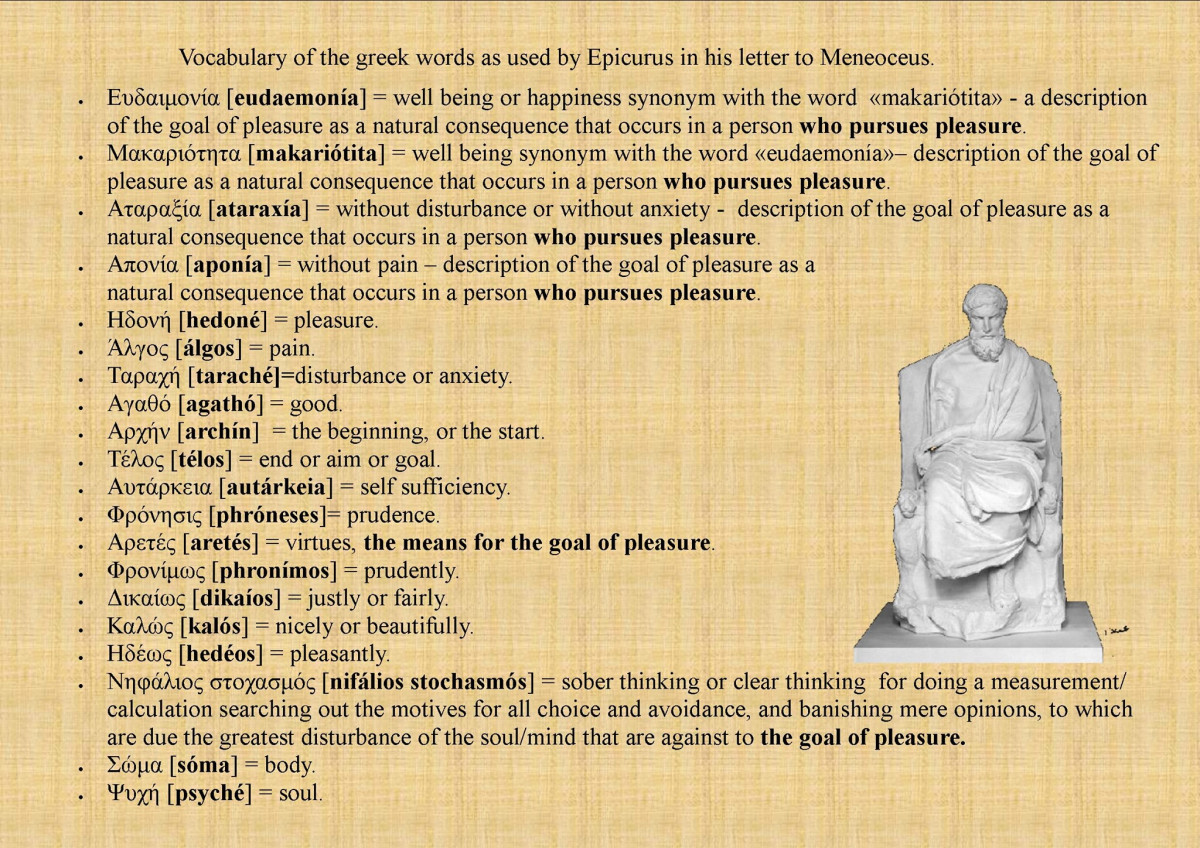"Aponia" is a key term in Epicurean philosophy. What exactly does it mean? There seems to be a consensus that it translates to "absence of pain," but is this a reference to bodily pain, to mental pain, to both, or with other connotations? This thread is for discussion of the meaning of "Aponia," including citations to reference where the term appears in Epicurean texts.
ἡ, (ἄπονος)
A non-exertion, laziness, X.Cyr.2.2.25, Arist.Rh. 1370a14(pl.); exemption from toil, of women, Id.GA775a37, cf. Plu. Rom.6.
II freedom from pain, Epicur.Fr.2, Chrysipp.Stoic.3.33, Dsc.Eup.1.67, Aret.SA2.1, etc.
For the time being - Elli's vocabulary list -- which is excellent - but which unfortunately we cannot expect most new people to have access to:


